Bloody warm-up: Ivan the Terrible’s unsuccessful campaign against Kazan in 1549. Background
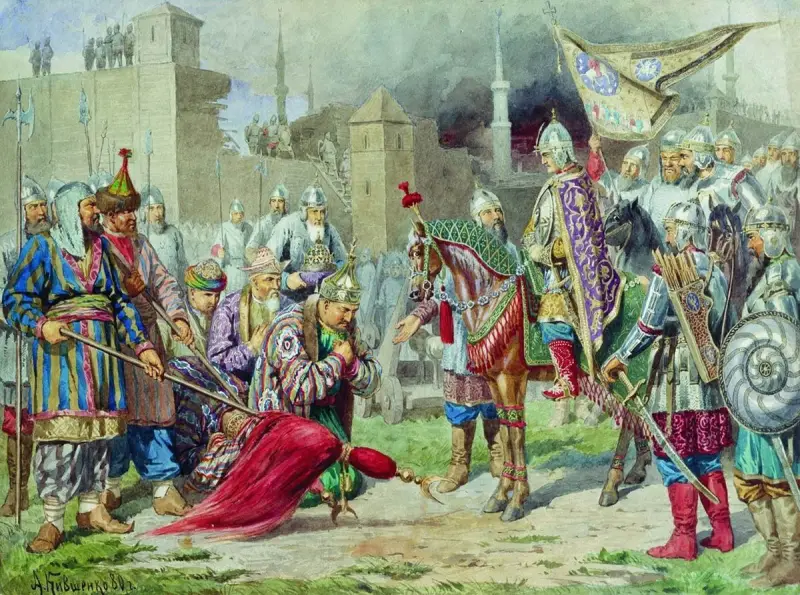
The annexation of Kazan to the Russian state was not an action from the “veni, vidi, vici” series. This process began under Ivan III and continued under Vasily Ivanovich. And their formidable descendant sent troops to the capital of the Volga Khanate three times before the famous capture of Kazan.
The last expensive workout was the campaign at the turn of 1549–1550. It was he who finally revealed all the weaknesses of the Moscow onslaught in the Middle Volga region, which did not allow the Kazan issue to be resolved once and for all.
What changed in this area of Russian foreign policy under Ivan the Terrible, how many forces could participate in the campaign of 1549–1550 and why did it end in failure, what conclusions were drawn in Belokamennaya?
We will try to give answers in a series of articles.
From protectorates to conquest: how the annexation of Kazan became a godly deed for Moscow
The threat of Kazan raids and the influence of Moscow’s enemies on the Volga Khanate, the importance of economic control over the region, the desire to improve the land situation by pacifying the eastern neighbor - all this was relevant even in the time of Ivan III and did not go away under his grandson (we will talk about this in some detail was told in previous publication). Except that for obvious reasons, at the beginning of the 16th century, the Greater Horde factor faded away, and the Nogai factor, already under Vasily III, was relegated to the background.
The main opponents of Belokamennaya in the “tug-of-war of Kazan rope” were the Crimeans. Something else has changed too.
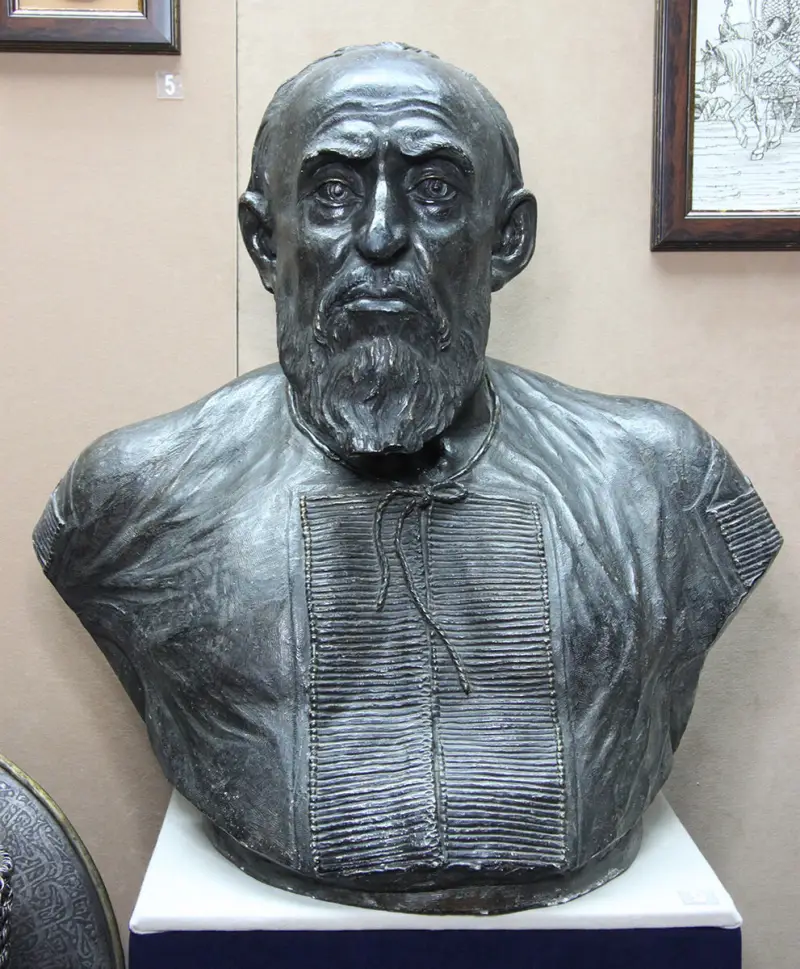
Bust of Ivan the Terrible. Based on Gerasimov's reconstruction
First of all, under Ivan the Terrible, all illusions about half-measures were dispelled and the main thing became clear. Any Moscow protectorate is just another leap over the Crimean back in the Khan’s leapfrog. As soon as they placed their protege on the throne with the help of the pro-Russian bloc of the Kazan aristocracy, the eastern “party” sounded the alarm in Bakhchisarai to remove Moscow’s “handyman”.
Already the first success of Taurida in this field - the accession of Sahib Giray in 1519 - resulted in large-scale anti-Russian protests in the Khanate, when “the Kazan seites and lancers and princes... having robbed the Grand Duke of the guests, they kept them.”
A little later, in 1521, the Kazan people took part in the devastating invasion of the Grand Duchy of Moscow (in the so-called Crimean tornado).
As for the overthrown khans, some of them managed to escape, as the resourceful Kasimov prince Shah Ali did twice. But his nephew Jan-Ali was less fortunate - he was killed.
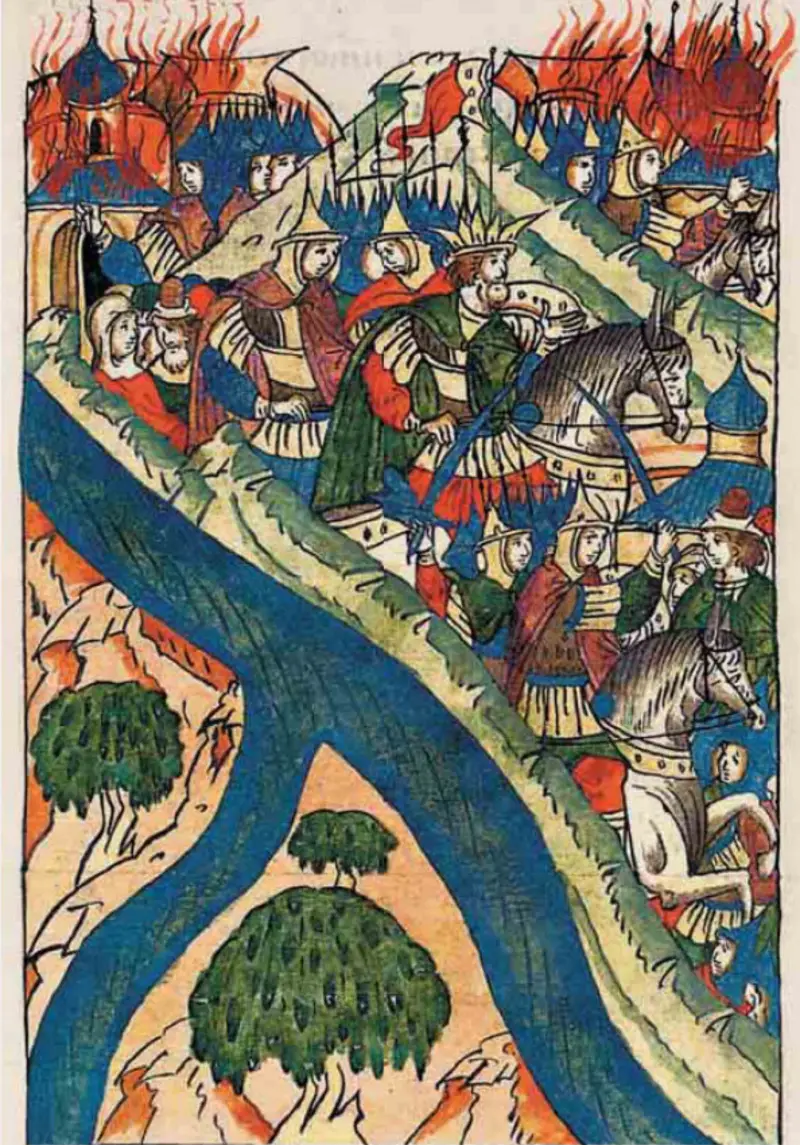
Crimean tornado. Miniature from the chronicle
Then the Crimean protege sooner or later received a “reciprocal gift” from Moscow and the pro-Russian Kazan nobility. Thus, Khan Safa Giray, who replaced poor Jan-Ali, was displaced during the uprising of January 1546 and fled.
Already in April 1546, Ivan the Terrible “released him to the kingdom” in Kazan and “planted” the same Shah-Ali from his own hand. His repeated reign lasted... only a month: the expelled protégé of Taurida did not sit idly by and managed to get help from the Nogais and Crimeans. Now Safa invaded the Kazan capital and sat down on the Crimean and Nogai sabers, and Shah Ali had to “make his legs.”
Having returned the throne, the old-new khan did not change the “good” tradition and immediately executed some of the “princes” of the pro-Moscow orientation.
Finally, Ivan the Terrible decided: stop putting up with this! He set out to fully conquer the Volga Khanate. This was the only way to ensure calm on the eastern borders, stop the seizure of the Russian army, and prevent Crimea from making Kazan its training ground for the fight against Moscow.
This situation fully correlated with the ambitions and personal aspirations of young Ivan Vasilyevich, who had just changed his profession or, more precisely, his title.
It’s one thing to simply loudly declare, they say, “I am a king, not by human will, but by God’s command...”, and quite another thing to confirm one’s status with a truly great accomplishment. And what could be a greater feat for a ruler than to conquer an equal monarch and conquer his territory?
Let us recall that formally the Kazan Khan, continuing the Golden Horde tradition, was considered a king. In addition, this would be, albeit partial, revenge for the past humiliations of Rus' during the Horde rule, because Kazan was one of the successors of the Ulus of Jochi.
Looking far ahead, it is not without reason that the author of the Kazan Chronicler will proudly write that no less than the Babylonian king came to congratulate Ivan Vasilyevich on the conquest of the Khanate in 1552.
The need to radically resolve the issue with Kazan was understood not only by the tsar himself, but also by the highest princely-boyar aristocracy (the interest of small service feudal lords - nobles and boyar children - was discussed in past publication) and church. Both were not only sincerely worried about Mother Russia, but were also not averse to receiving a piece of the Kazan pie: land grants and additional peasant strength, new positions, parishes, monastic possessions, and finally, military glory and booty.
It is no wonder why, for absolutely everyone during the reign of Ivan IV, the conquest of the “sub-Heaven land” with its “great and extremely abundant fields and rich in all kinds of flesh” becomes the most godly thing.
To be fair, we note that religious notes in the Kazan context were heard much earlier, since the time of Ivan III. Having become the Third Rome, Moscow officially took upon itself the sacred mission of protecting all fellow believers. Any violence against Orthodox people - be it the theft of peasants into slavery or the robbery of merchants on the Volga by the Tatars - was regarded as a crime against the Lord himself.
However, under Ivan III, such rhetoric slips through, but does not yet pour out of every iron. Yes, in chronicles and other texts regarding the Volga campaigns, even then it is periodically noted that this was being done for the sake of God or the “Christian faith,” etc. But such formulations were common at that time - the same as today “for world peace” or “in the name of democracy.”
Ivan III himself was great in everything except, in modern terms, PR. He simply went towards his goals and eventually established the first Russian protectorate over Kazan in 1487, but did not bother to turn everything into a holy war.
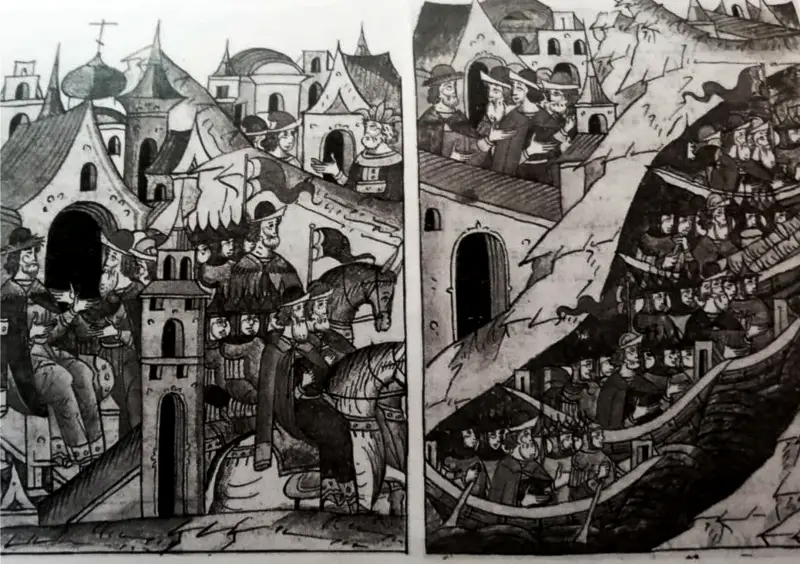
Advance of Russian troops to Kazan in 1487. Horse and ship army. Miniatures of the facial vault. Book of the XNUMXth century.
But his son and heir Vasily III is already taking certain steps in this direction.
A striking example is the Russian campaign against Kazan in 1523. The Grand Duke, together with his brothers and the voivodeship corps, set out from Belokamennaya on July 28. Their route ran through Pereyaslavl-Zalessky, Yuryev, Suzdal, Vladimir, where they stayed for two weeks. As he advanced, the sovereign visited famous shrines and performed prayers.
This was done not only so that God’s grace would descend on the Orthodox army and overshadow Russian sabers, arrows and cannons. At that time, Moscow “image makers” were actively working on the image of an exemplary Christian ruler, favored by the Almighty himself.
The thesis about the religious background of the Russian-Kazan conflicts finally took shape only in the 40s of the XNUMXth century under Metropolitan Macarius. This was discussed a lot in the church environment and journalism. The famous Russian “blogger” of the XNUMXth century, Ivan Peresvetov, spoke about Moscow’s duty to “stand firmly against the infidels for the Christian faith” and spread Orthodoxy to new territories more often than Marcus Porcius Cato spoke about the destruction of Carthage.
And again, under the entire religious shell one can see a completely pragmatic and worldly basis.
Under Grozny, the foreign economic need for strict control over Kazan also intensified. Even under Ivan III, the Volga-Caspian trade direction was rather an alluring exotic and a pleasant opportunity to diversify sales and imports. After all, the importance of Western markets has not yet decreased - numerous obstacles and sanctions will begin there a little later.
Trade and diplomatic interaction with the West, on the contrary, developed rapidly, since the suddenly risen Moscow was a promising ally against the Ottoman “shaker of the universe.” The Emperor of the Holy Roman Empire even saw in the young Russian state, if not his future colony, then at least a sphere of influence.
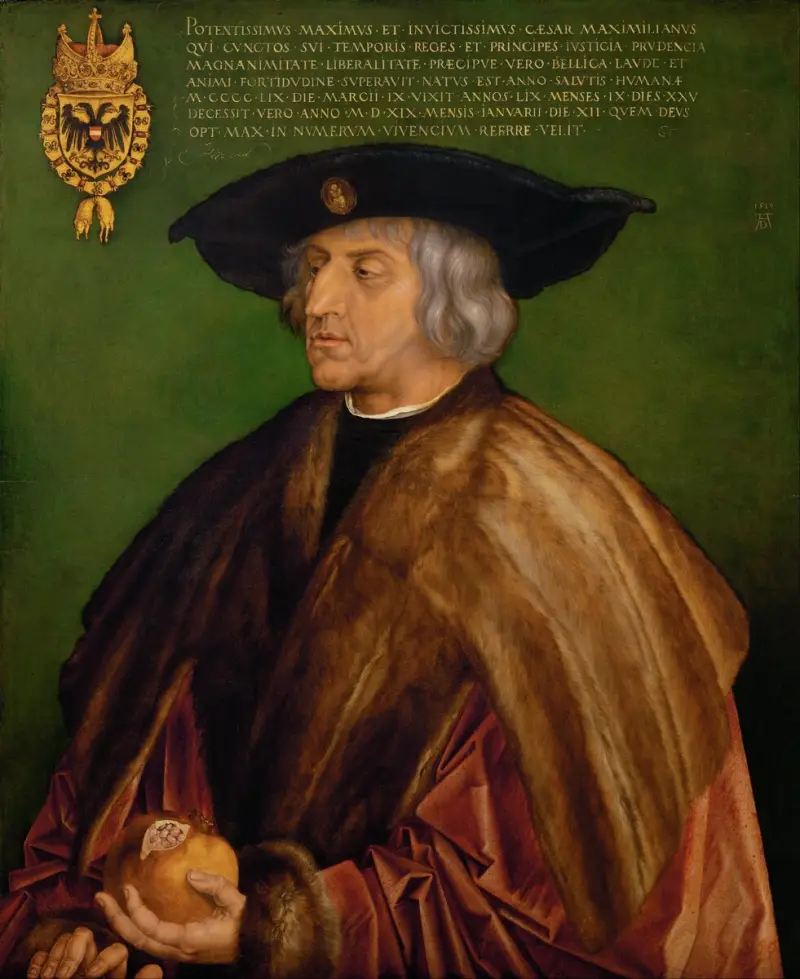
Holy Roman Emperor Maximilian I of Habsburg. Portrait by A. Durer
Then an energetic exchange of embassies will begin. Ambrogio Cantarini, Johann Fabri and other Europeans are actively writing narratives where Moscow is just like a ghost with a motor from the immortal Soviet cartoon - wild but cute. Yes, these are schismatics, and in terms of civilization they are far from Europe. But look how strong they are, since they survive in their forests and snows, how pure in spirit and thoughts! You just need to draw them into your orbit, push them to accept the church union - and you can safely be friends until the grave.
Already under Vasily III, the illusions of Europeans regarding the “Muscovites” dissipated. They don’t want to be harnessed to the anti-Turkish league without any benefit and accept church union; they turn their nose up at the kingdom status granted by the Habsburgs - barbarians, and that’s all!
And then there is Polish-Lithuanian propaganda with its “horror stories” about the vast hordes of Moscow savages, who, according to the “scientist” Matvey Mekhovsky, “drink and eat... until they can no longer distinguish their head from their butt.” What the hell do they care about equal trade, supplies of horse stock, tin, etc.? It is better to impose sanctions on them and not sell anything that is needed for military affairs.
In the first third of the 16th century, the Livonian Order began to especially zealously block the entry into the Russian state of strategic goods that were not here simply for natural reasons. Moreover, in negotiations with Moscow, the Livonians either subtly or quite strongly hint that such a policy is dictated by their overlord - the Holy Roman Emperor.
Economic ties with the Ottoman power, which even under Ivan III had been Moscow’s main counterparty in the eastern direction, also gradually weakened. Among other things, from there the Russian state received in-demand weapons, damask blades and ingots, fabrics, and Indian spices in transit.
But the efforts of the Crimean Khanate, a vassal of Turkey, which from a certain moment tried in every possible way to push their heads against the Mother See and Istanbul, gradually bore fruit. Largely at the Crimean instigation, the same Kazan was declared an Ottoman yurt in 1524, so now Russian and Turkish interests have already officially clashed in the Volga arena.
Looking far ahead, in 1569 it would come to the first Ottoman campaign on the territory of the Muscovite kingdom and the siege of Astrakhan. All this did not contribute to an increase in trade between the two states - rather, on the contrary.
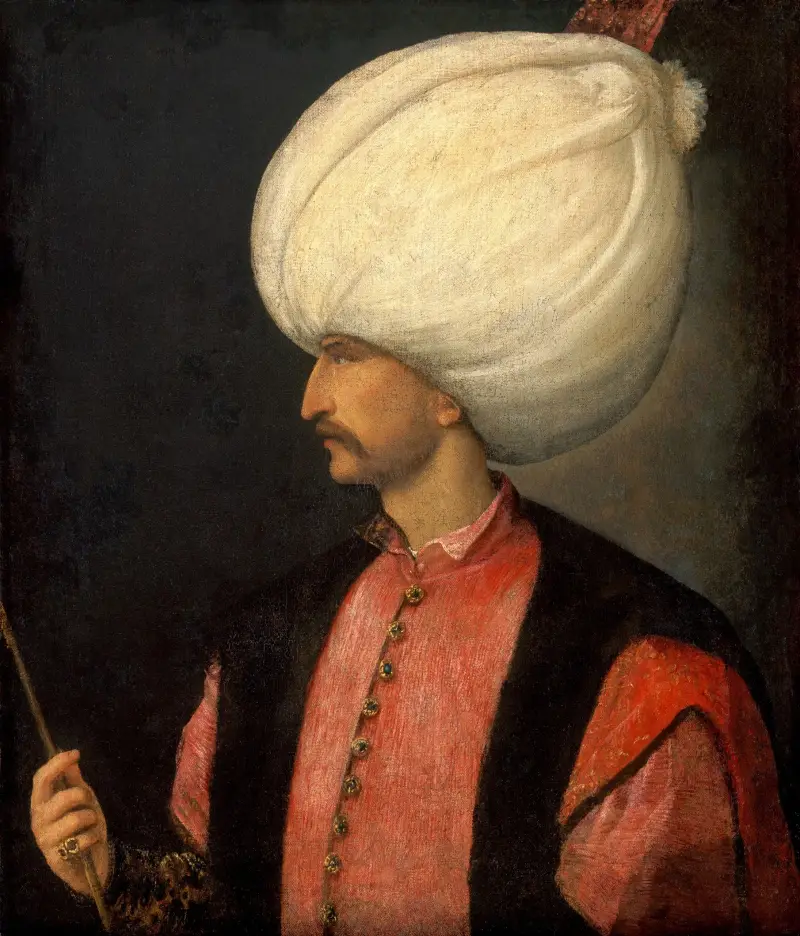
Sultan of the Ottoman Empire Suleiman I the Magnificent. Portrait of Titian's workshop
So the Russian state had to completely reorient itself towards the Volga-Caspian direction.
It was necessary to easily purchase cheap Tatar horses in Kazan and Astrakhan, go along the Volga to the Caspian Sea and get to Persia, Shirvan, Khiva, and Bukhara. To do this, it was necessary to improve the Volga trade artery as much as possible - set up outposts there, build cities, deal with river piracy, and rein in the bands of Cossacks and Nogais. Even the most tenacious protectorate did not allow such management - it was necessary to fully include Kazan, and then Astrakhan, into the Russian state.
Without the final conquest of the Middle Volga region, it was impossible to secure their positions in Perm, the Kama region, and also to go further “into the depths of the Siberian ores” in order to obtain their own valuable natural resources for casting guns, making ammunition and not depend on supplies from the West.
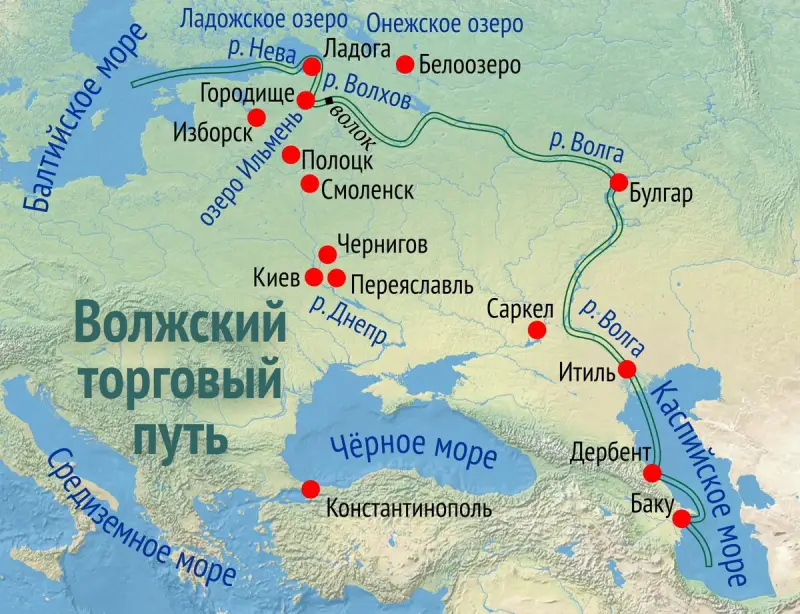
How tax oppression in Kazan played into Moscow’s hands
The signals coming from the Khanate itself also gave the Moscow Tsar determination.
In addition to a handful of loyal Tatar feudal lords, peoples controlled by the khan began to openly go over to Moscow’s side.
It should be noted here that the Kazan Khanate was an explosive mixture of the ruling Tatars and the Bulgar natives subject to them - Mordovians, Cheremis, Chuvash, Votyaks (Udmurts), Bashkirs and others. They all paid yasak (fur tax) and other taxes to the central government. Massive dissatisfaction with the tax burden, natural and labor obligations added spice to the internal situation of the Kazan state. For example, the yasak Chuvash paid about 20 permanent taxes to the treasury.
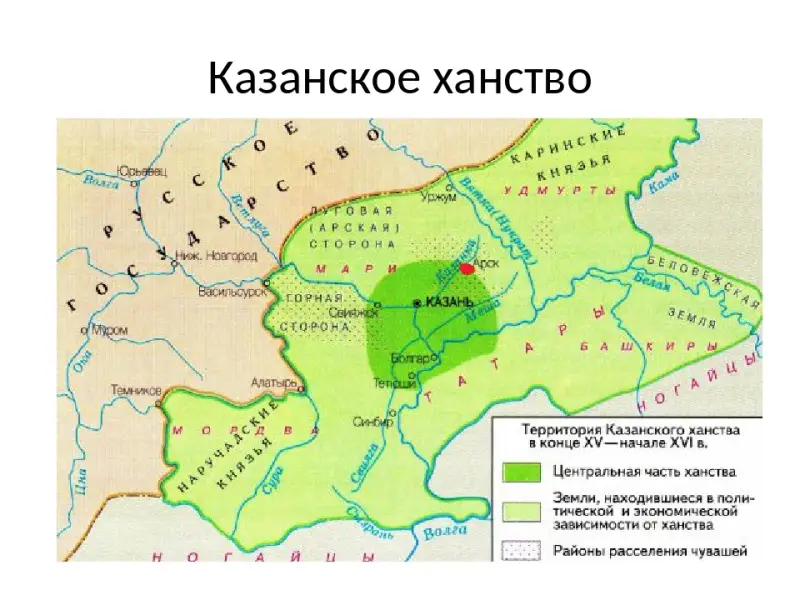
For some native Bulgar feudal lords, Russian expansion became the spark for their own struggle against the khan. The key phrase here is precisely “native feudal lords”: one should not imagine the revolutionary impulse of the indigenous Bulgarian peoples with a “world fire in the chest.” And the khan’s power was not such a yoke for everyone. The left-bank (meadow) Cheremis felt very good, since they could sell the furs obtained in their dense forests to both domestic and foreign markets (at the international fair on Gostiny Island).
But the right-bank (mountain) Cheremis received mainly duties and Kazan, Moscow and Nogai troops scurrying around their territories - this is how these lands were “successfully” located. During military clashes, they were often the first to come under attack and were subjected to devastation; they were often involved in cutting down forests, building bridges, and maintaining roads.
Moreover, these “most skillful shooters,” as Sigismund Herberstein writes about them, were constantly mobilized to participate in wars they did not need. It is not surprising that in 1546 the Mountain Cheremis, together with the Chuvash, rebelled against the khan and, in fact, ceased to obey him. A little later, their rapid rapprochement with Moscow, which has become an alternative to the Kazan government, will begin.
Deciding to strike while the iron was hot, at the end of autumn 1548, Ivan IV gathered a large army, a representative artillery outfit and organized a large-scale campaign against Kazan.
Alas, it ended in nothing, as chroniclers report, due to abnormally warm and rainy weather. On the way to the khan's capital, many artillery pieces fell under the melting ice of the Volga, and some of the warriors drowned.
Without waiting for the “good procession,” the troops had to return to Nizhny Novgorod, where they arrived on January 10.
But the failure, as subsequent events would show, only provoked the Russian Tsar even more.
The last impetus for the campaign of 1549: the danger of the washing chambers
Another window of opportunity for resolving the above-mentioned problems was opened by the sudden death of Khan Safa Giray at the age of 42 in early 1549.
As it is said in the “Kazan Chronicler,” the khan “killed himself in his lame clothes”: with drunken eyes, he slipped and hit the “washhouse with his head.”
In general, for stories The details of the death of poor Safa are not so important: whether he died on a white horse in the thick of battle or through negligence in his own latrine. However, there is an interesting point here related to the perception of information from a source by different people to the extent of their national bugbears.
For example, researcher S. Kh. Alishev writes:
Other researchers and publicists also note the bias of the “chronicler” in this fragment and a number of other episodes.
We admit that the author of the Kazan Chronicler, being a subject of the Russian Tsar, quite openly “roots for the Moscow team.” And he’s also good at making up fables for the sake of a catchphrase.
But, returning to the fate of Safa Giray, could the “chronicler” simply play around and come up with something like “death from hemorrhoidal colic”? Much more in his spirit, he tried to frame everything as God’s punishment for atrocities against the Russian sovereign and Orthodox people. To do this, the author would have resorted to the method of centon-paraphrase borrowing, favorite among all the chroniclers of that time: why pull something out of thin air if everything is already written in authoritative biblical texts, ancient epics or Scandinavian sagas?
Let us take, for example, the description of the serious illness of Khan Muhammad-Emin, who died in 1518, from the same “Kazan Chronicler”:
Such a “case history,” although it does not allow doctors to make an accurate diagnosis, clearly refers to the case of Herod the Great and warns about the harm to the body and soul of beating infants. The latter are played by Moscow merchants who were beaten in Kazan by that same Muhammad-Emin in 1505.
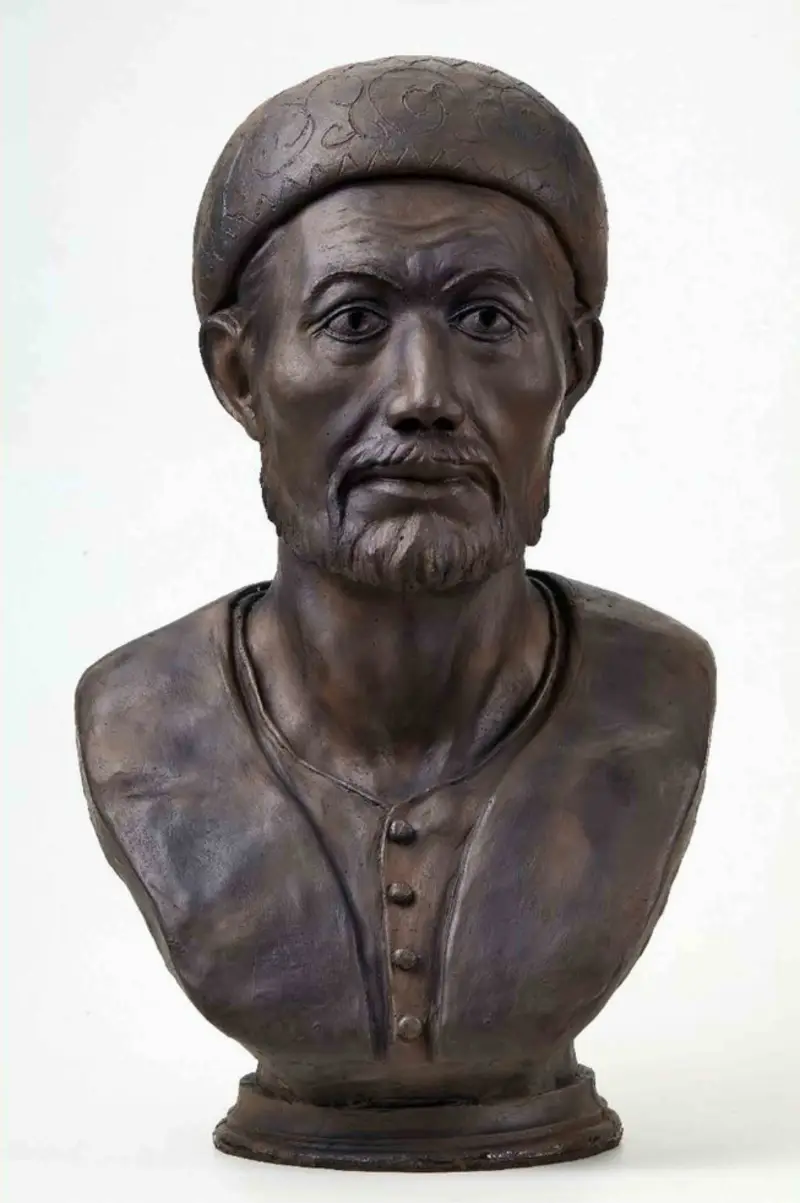
Kazan Khan Muhammad-Emin. Reconstruction based on the Khan's skull
And what message is there in Safa Giray’s head, broken from a hangover, other than the harm of excessive libations?
It is quite possible that in this case the author of the monument actually reflected some contemporary “scandals, intrigues, investigations” regarding this story.
One way or another, the Kazan Khan “was no longer in his stomach,” and the throne was inherited by his two-year-old son Utyamish Giray. The central power in the Khanate sharply weakened, and the pro-Russian bloc of the Kazan aristocracy raised its head and looked again towards Belokamennaya.
How exactly Ivan IV took advantage of the current situation will be discussed in detail in the next publication.
Sources:
Postnikov's chronicler // Complete collection of Russian chronicles. T. 34. M., 1978.
The story of the Kazan kingdom. Kazan chronicler // Complete collection of Russian chronicles. T. 19. M., 2000.
Herberstein S. Notes on Moscow Affairs. Edition 1908 // Eastern literature. Medieval historical sources of the East and West. URL: http://www.vostlit.info.
Andrei Kurbsky, The Story of the Grand Duke of Moscow.
Works of Ivan Semenovich Peresvetov // Library of Literature of Ancient Rus'. T. 9. The end of the XNUMXth - first half of the XNUMXth century.
Matvey Mekhovsky. Treatise on two Sarmatias. // vostlit.info.
References:
Alishev S. Kh. Kazan and Moscow: interstate relations in the 1995th–XNUMXth centuries. Kazan, XNUMX.
Ilyushin B. A. “War of the Summer 7014.” Moscow-Kazan conflict 1505–1507. N. Novgorod, 2018.
Fechner M.V. Trade of the Russian state with the countries of the East in the 1956th century. // Proceedings of the State Historical Museum. M., XNUMX.
Filyushkin A.I. Vasily III. M., 2010.
Florya B. N. Ivan the Terrible. M. 1999.
Zimin A. A. Russia during the time of Ivan the Terrible. M. 1982.
Information